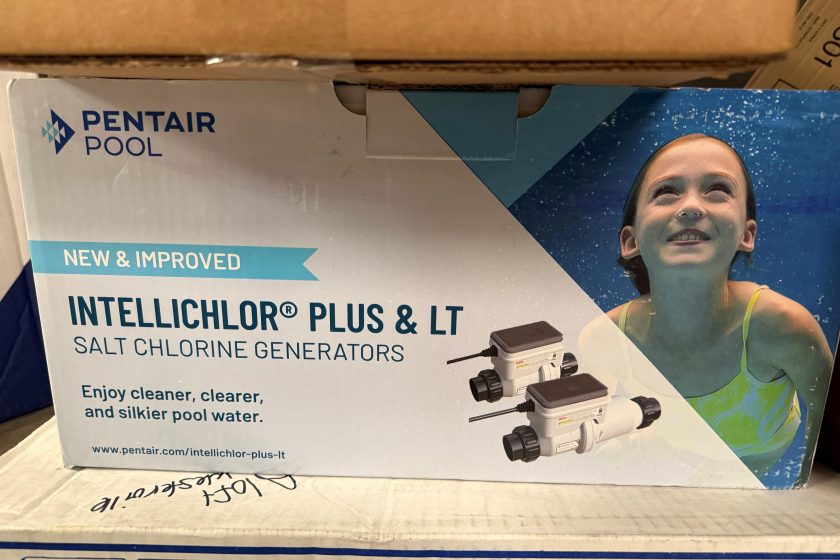Saltwater vs. Chlorinated Pools: Which Is Best for Your Backyard?

If you’re in the market for a new swimming pool, you’ve likely considered the pros and cons of a saltwater pool versus a traditional chlorinated pool. Both options come with their own advantages, and the right choice often depends on your household’s lifestyle and preferences. Let’s take a closer look at each system to help you decide which one might be the best fit for your family:
Saltwater Pools
Advantages:
Saltwater pools use a chlorine generator that converts salt into chlorine, helping to maintain a consistent chlorine level. Many customers find saltwater pools easier to maintain and say the water feels softer on the skin. They also appreciate the milder chlorine smell and note that salt is generally less expensive than chlorine tablets.
Even with a saltwater system, we still recommend shocking the pool with chlorine once a week to ensure proper sanitation.
Disadvantages:
Salt cells can be expensive to replace when they wear out. Additionally, salt can be corrosive to pool surfaces and equipment over time, so keeping the water properly balanced is essential. Saltwater pools also tend to run at a higher pH level unless paired with a product like BioGuard Mineral Springs, which helps maintain better chemical balance than using plain salt alone.
If you open your pool early in the season, you may need to run your heater to warm the water enough for the salt cell to function properly.
Also, because saltwater systems use non-stabilized chlorine, you’ll need to add stabilizer (cyanuric acid) to protect the chlorine from breaking down in the summer heat.
Chlorinated Pools (Chlorinator System)
Advantages:
Chlorinators are typically simple and affordable to repair—much less expensive than replacing a salt cell. Chlorine tablets used in chlorinators are stabilized, meaning they include a built-in stabilizer to help retain chlorine on hot days. These systems are easy to operate: just place the tablets in the feeder, and if everything is working correctly, the chlorinator will maintain the chlorine level. As with saltwater pools, we recommend shocking the pool weekly, especially during heavy use.
Disadvantages:
High-quality tablets, like those from BioGuard, can be more expensive than generic options—but they’re also more effective and reliable. Chlorinators can occasionally clog, and the lids may be difficult to open. Additionally, the chlorine smell can be quite strong when opening the unit.